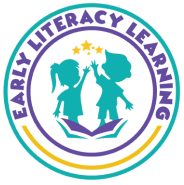MORE Tummy
MUSIC!

November 17, 2023
Musical connections begin in the womb. Dr. Daniel Levitin, who’s a musician and neuroscientist, explained in an interview how the perception of music starts, “We begin hearing music in the womb through the amniotic fluid - it sounds like listening to music underwater, such as in the bathtub or a swimming pool. The developing brain wires itself up to the patterns it hears, first in the womb and then as an infant. As we hear more and different kinds of music, our brain incorporates them into its wiring.“
Music time offers the baby in the womb exposure to sounds of speech. Singing and playing the same lullabies or simple songs repeatedly is best in the last trimester. Dr. Eino Partanen, in 2013 at the University of Helsinki, along with three other leading scientist studied the auditory learning of infants who previously had heard the familiar tune “Twinkle, Twinkle Little Star” played to them multiple times while in-utero. The results showed that the babies remembered those prior tunes up to four months after their birth. From this study and others, scientists are finding that prenatal musical experiences are important to language learning development.
What’s the relationship of classical music-specifically Mozart’s music to a baby in the womb and infants? In the 1990’s fetus research was presented to the world, called the “Mozart’s effect”. The results of this study were interpreted to mean - if a baby in the womb were to listen to the classical music of Mozart, it’s IQ would be increased. Today the majority of scientists do not agree with the “Mozart effect”. Currently there is not enough evidence to support the conclusion, that playing Mozart’s music develops smarter babies.. However, classical music does have many advantages. It was shared in a University of Georgia, Extension website article that “Researchers think that classical music is what primes the brain to solve spatial problems more quickly. So, listening to classical music may have different effects on the brain than listening to other types of music”.
Scientists are currently doing more extensive research, some studies are observing the facial expressions, movements of mouth and tongue of a fetus upon hearing different types of music in the womb. Numerous other discoveries are being made throughout the world concerning the relationship between music and the developing baby brain.
Stay tuned for further research!
Singing and playing the same lullabies or simple songs is benefitable to the developing baby brain. Have a favorite song list handy, those are the ones that you don’t mind singing or hearing over, and over, again. It will be as if you are a professional musician, one who performs nightly to their very own fan club!
“Music acts like a magic key to which the most tightly closed heart opens.”
